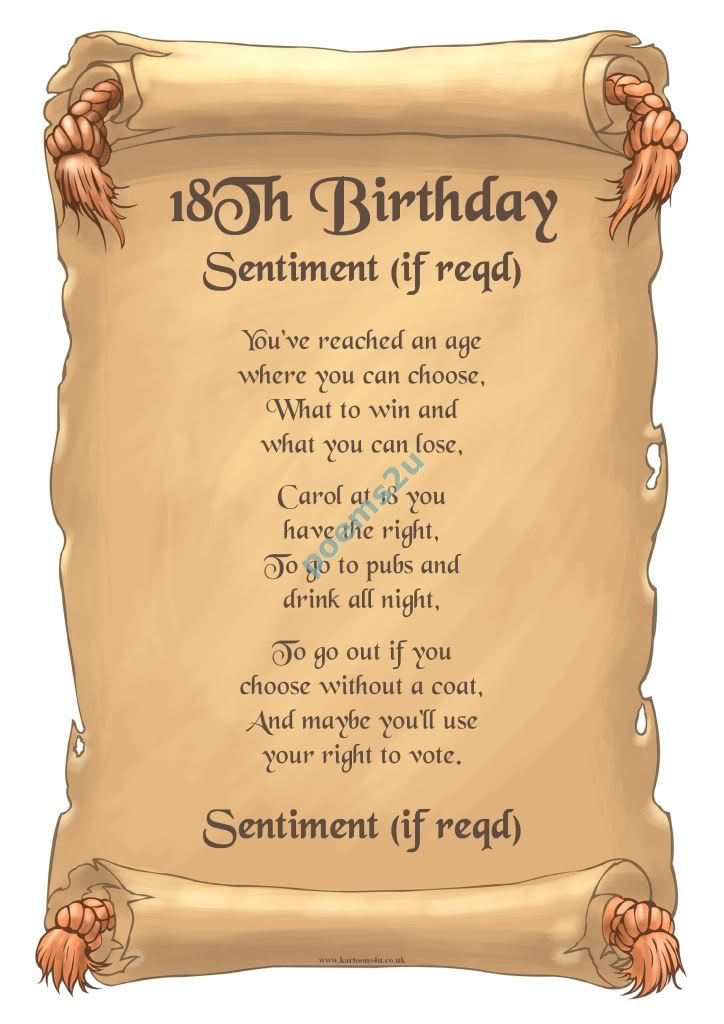Birthday Poems Biography
source(google.com)
As early as the third issue, Poetry had achieved its distinctive mode, including six translations of the Bengali poet and Nobel prize-winner, Rabindranath Tagore, a selection of work by well-known and new poets from both sides of the Atlantic, including Yeats, John Reed, and Alice Meynell, as well as prose commentary. The eclectic mix was occasionally broken up by a single-topic special number, such as the "War" issue of November 1914. While Monroe took seriously Emerson's dictum about the need for America to create its own literature without slavish dependence upon its English cousins, she often published work in translation. Later issues might favor prose over poetry, or the work of the established over the work of the unknown. But the earliest issues contain the seeds that editors after Monroe would develop.Following Monroe's death from a stroke in 1936 while on her way to climb Peru's Macchu Picchu, the magazine was edited by her assistant editor, Morton Dauwen Zabel, until George Dillon took over in 1937. He was helped by Peter De Vries, who later joined the staff at the New Yorker. They published many of the best young poets from the war years, often for the first time, including Gwendolyn Brooks, John Ashbery (under a pseudonym furnished by a classmate who had stolen the poems), Frank O'Hara, Randall Jarrell, Robert Lowell, Howard Nemerov, and Karl Shapiro. Dillon served in World War II as did many of the poets he published; the tradition of special issues was continued with the August 1943 issue designated as the "Poets in Service Issue." The forties also saw the magazine printing a great deal of prose as the practice of New Criticism, with its emphasis on ambiguity and close reading, began to dominate English departments in universities. Although much of this criticism was useful, its growing presence in the magazine was also controversial, as the essays were often dense, difficult to read, and suited more to academic specialists than general readers.
When Dillon resigned in 1949, he suggested that his assistant editor, Hayden Carruth, replace him. Carruth wanted to print more and longer works by established poets, reducing the number of new voices that appeared. He also continued to tilt the balance of the magazine toward prose, at one point going so far as to include only eight pages of poetry in an issue. Not surprisingly, perhaps, Carruth lasted only a year in the job.








source(google.com)
As early as the third issue, Poetry had achieved its distinctive mode, including six translations of the Bengali poet and Nobel prize-winner, Rabindranath Tagore, a selection of work by well-known and new poets from both sides of the Atlantic, including Yeats, John Reed, and Alice Meynell, as well as prose commentary. The eclectic mix was occasionally broken up by a single-topic special number, such as the "War" issue of November 1914. While Monroe took seriously Emerson's dictum about the need for America to create its own literature without slavish dependence upon its English cousins, she often published work in translation. Later issues might favor prose over poetry, or the work of the established over the work of the unknown. But the earliest issues contain the seeds that editors after Monroe would develop.Following Monroe's death from a stroke in 1936 while on her way to climb Peru's Macchu Picchu, the magazine was edited by her assistant editor, Morton Dauwen Zabel, until George Dillon took over in 1937. He was helped by Peter De Vries, who later joined the staff at the New Yorker. They published many of the best young poets from the war years, often for the first time, including Gwendolyn Brooks, John Ashbery (under a pseudonym furnished by a classmate who had stolen the poems), Frank O'Hara, Randall Jarrell, Robert Lowell, Howard Nemerov, and Karl Shapiro. Dillon served in World War II as did many of the poets he published; the tradition of special issues was continued with the August 1943 issue designated as the "Poets in Service Issue." The forties also saw the magazine printing a great deal of prose as the practice of New Criticism, with its emphasis on ambiguity and close reading, began to dominate English departments in universities. Although much of this criticism was useful, its growing presence in the magazine was also controversial, as the essays were often dense, difficult to read, and suited more to academic specialists than general readers.
When Dillon resigned in 1949, he suggested that his assistant editor, Hayden Carruth, replace him. Carruth wanted to print more and longer works by established poets, reducing the number of new voices that appeared. He also continued to tilt the balance of the magazine toward prose, at one point going so far as to include only eight pages of poetry in an issue. Not surprisingly, perhaps, Carruth lasted only a year in the job.
Birthday Poems 2013 Pics Pictures Images Photos

Birthday Poems 2013 Pics Pictures Images Photos

Birthday Poems 2013 Pics Pictures Images Photos

Birthday Poems 2013 Pics Pictures Images Photos

Birthday Poems 2013 Pics Pictures Images Photos
Birthday Poems 2013 Pics Pictures Images Photos

Birthday Poems 2013 Pics Pictures Images Photos

Birthday Poems 2013 Pics Pictures Images Photos
Birthday Poems 2013 Pics Pictures Images Photos

Birthday Poems 2013 Pics Pictures Images Photos







No comments:
Post a Comment